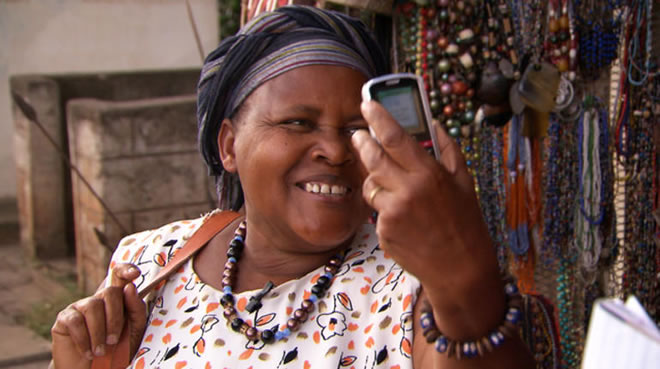
Sunday, November 22, 2015
The following is a script from "The Future of Money" which aired on Nov. 22, 2015. Lesley Stahl is the correspondent. Shachar Bar-On and Alexandra Poolos, producers.
Tech giants like Google, Facebook, and PayPal are all steadily rolling out new-fangled services to turn our smartphones into digital wallets -- replacing cash and checks. And it's been reported that Apple is working on a new payment option to let iPhone users send money directly to one another -- as easily as a text message.
If this all seems cutting edge, you may be surprised to learn there's one country that adopted mobile money years ago: Kenya. Here in the U.S., we can use smartphones to pay for things, but you typically need to be linked to a bank account or credit card. In Kenya, you don't need a bank account, you don't need a credit history, or very much money for that matter, making this country in East Africa a giant experimental laboratory defining the future of money.
At a bus station in Nairobi, buses were not only loaded with humans and cargo, but with cash. It used to be the only way for people working in the cities to get money to relatives back in their remote villages.
Bob Collymore: You give the cash to the bus driver, and then you say, "When you get up to the village in Kakamega -- you will see someone at the crossroads. Give the money to him." Guess what happens? The money evaporates.

Bob Collymore, the CEO of Kenya's largest cell phone provider, Safaricom, says his company sought to solve the problem. While a majority of Kenyans don't have a bank account, eight in 10 have access to a cell phone. So in 2007, Safaricom started offering a way to use that cell phone to send and receive cash. They call it M-PESA: m stands for "mobile;" "pesa" is money in Swahili.
Read more...